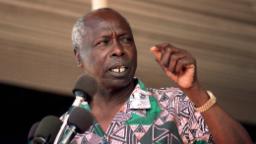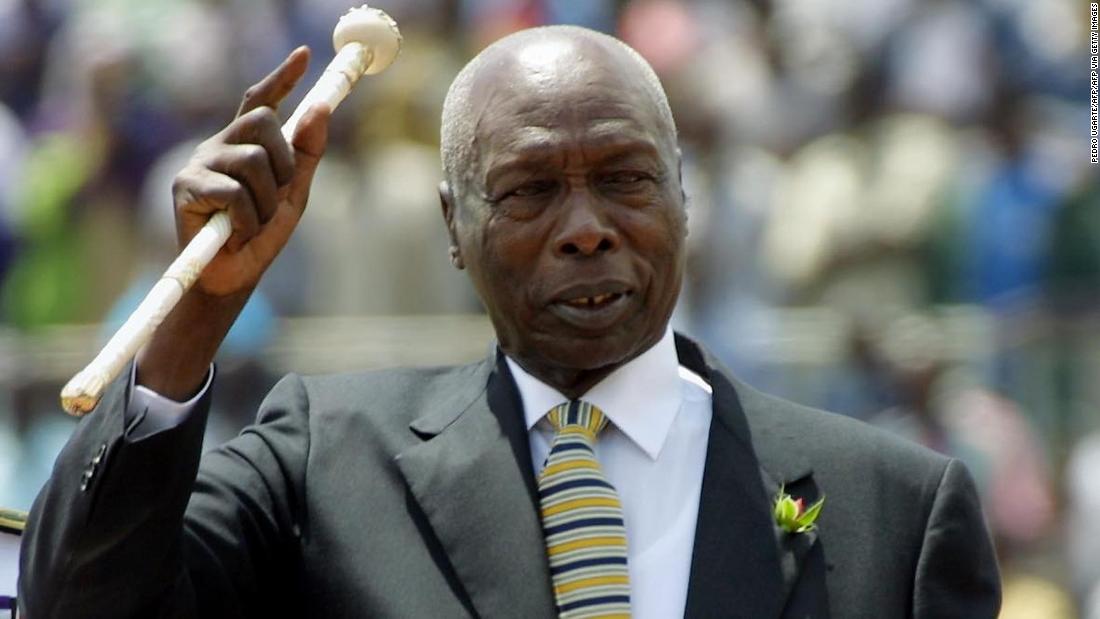
He ordered a period of national mourning and all flags to fly at half-staff until a state funeral is held at a later date.
Moi died at a hospital in the early hours of Tuesday morning surrounded by his family, Kenyatta said.
He had been hospitalized in October for breathing problems but was discharged after a few weeks.
An autocratic rule
Moi was born September 2, 1924, in Baringo County. He became Kenya’s second president after independence and went on to rule from 1978 to 2002.
His wily grasp of power earned him the nickname “Professor of Politics” amongst Kenyans.
His 24 years in power encompassed one-party rule through the Kenyan African National Union, the party he controlled, and also the reintroduction of democracy and multiparty politics, which culminated in his victory in the 1992 Presidential elections.
He became the Minister of Home Affairs and President Jomo Kenyatta later named him Vice President in 1967.
Quashing rebellion
Four years after Moi came to power, some members of the Air Force attempted a coup, which Moi successfully and ruthlessly crushed.
After the attempt, Moi’s rule became more hard-nosed — he dismissed political opponents and reduced the influence of his predecessor’s allies in his cabinet.
Widespread influence
He also rallied to the cause of anti-apartheid in southern Africa, sending Kenyan soldiers into pre-independence Zimbabwe as peacekeepers during the ceasefire there in 1979.
While he was the Chairman of the Organization of African Unity, Moi was involved in securing peace in Chad. In Sudan, Moi chaired the talks that led to a referendum that ended a three-decade war in South Sudan and the creation of a new nation in July 2011.
With 24 years at the helm of Kenya’s government, Moi had a massive impact in shaping Kenya’s politics and governmental structures. Subsequent presidents, Mwai Kibaki and Uhuru Kenyatta, can be said to have been appointed by the elder statesman.
As a former teacher, Moi’s legacy also included a wide expansion of higher education. It was during the Moi era that the university sector grew starting with the opening of Kenya’s second university in Eldoret, a town in the north.
Other universities followed, including private educational institutions run by Methodists. Today Kenya has more than 60 universities and public university colleges.
Source: CNN Africa
